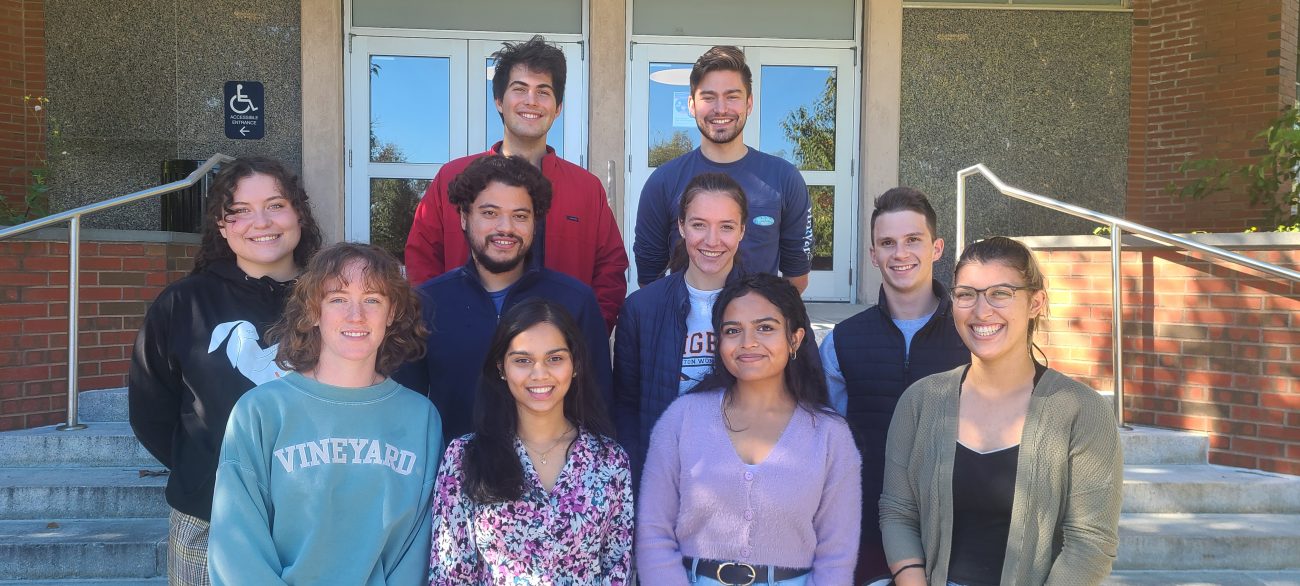The University of Connecticut has been selected as just one of approximately 120 institutions worldwide to be part of the Millennium Fellowship program by United Nations Academic Impact and the Millennium Campus Network.
The program’s purpose is to “convene, challenge, and celebrate” student leaders working toward United Nations sustainable development goals through social impact.
More than 25,000 students applied for the program on 2,209 campuses in 153 countries. Only 6% of universities were selected and the applications were all student-based.
The program is directed on the UConn campus by student leaders Amisha Paul ’22 (CLAS), an physiology & neurobiology and economics major, from Southington, and Caitlin Daddona ’22 (CLAS), an environmental sciences and sociology major from Glastonbury.
“The Millennium Fellowship leverages the energy and creativity of young leaders around the world in hopes of advancing the United Nations’ Sustainable Development Goals,” says UConn Provost and Executive Vice President for Academic Affairs Carl Lejuez. “UConn’s 11 Millennium Fellows, who join students representing 136 campuses in 30 different countries, are working actively advance these goals, and I’m pleased to see their hard work recognized through their selection to be a part of this global network of young leaders.”
The program gives the UConn students the resources of a curriculum developed by the United Nations and the Millennium Campus Network (MCN), a global student network addressing humanity’s greatest challenges. Through its programs, MCN convenes, challenges, and celebrates student leadership for social impact.
“We have a lot of active students on campus and people who are seeking a global mindset,” says Daddona. “Being part of this program allows people to get acquainted with the right resources on campus and move forward.”
Programs on the UConn campus performed by Millennium Scholars include a clothing swap, a financial literacy program for first-generation students, and projects promoting good health and well-being.
“All the projects are very different, but the key thing that ties them all together is the connection to the UN’s sustainability goals,” says Paul. “All of the projects are aligned with at least one sustainability development goal.”
As part of the program, Daddona and Paul are coordinating campus activities like training sessions for the fellows.
“We discuss careers in social impact work and what being involved in social impact really looks like,” says Paul. “We are able to connect with other students from all over the globe to discuss important issues and what we are all working on.”
Nidhi Nair ’23 (CLAS), an economics and mathematics-statistics major from Farmington, is another one of the fellows at UConn.
“This program gives you a platform to speak about what you are doing on campus and connects you to a network of like-minded people across the world,” says Nair. “You can reach to people who are working on similar topics and have the same goal.”
In addition to Daddona, Paul, and Nair, the following UConn students are part of the Millennium Fellowship program:
Shannon Collins ’23 (CLAS), an environmental studies and human rights major from Melrose, Mass.
Noah Frank ’22 (CLAS), a political science and economics major from South Windsor.
Michael Hernández ’22 (CLAS), an economics and political science major from Stamford.
Isadore Johnson ’22 (CLAS), an economics major from Greenwich.
Mitchel Kvedar ’22 (CLAS), a political science and environmental studies major from Burlington.
Samantha Lamb ’22 (CLAS), an environmental studies and political science major from Norwalk.
Emma Paynter ’23 (CLAS), an environmental studies major from Lyme.
Emily Spagnuolo ’22 (CLAS), an environmental science major from Sherman.



